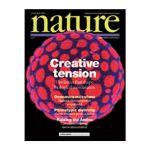
Leukaemogenic effects of Ptpn11 activating mutations in the stem cell microenvironmentBiologic and medical implications of the bone marrow niche., Publication

Osteoblastic cells regulate the haematopoietic stem cell niche.Defining a stem cell niche., Publication

